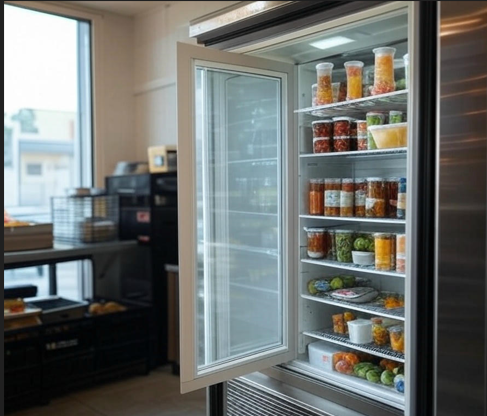
Let’s be honest — running a small restaurant is chaos and choreography all at once. You’ve got dishes flying out of the kitchen, ingredients running low at the worst times, and every inch of space matters more than your weekend plans. That’s exactly why your fridge needs to be more than cold. It needs to work. Every time. No fuss. No fancy features that make no sense. Just reliability.
The reality is, a commercial refrigerator for restaurant use isn’t just a luxury — it’s non-negotiable if you want to stay ahead of spoilage and health inspectors. And this year, there’s a wave of smarter, sleeker, and surprisingly compact options that don’t try to take over your entire kitchen floor.
If you’re not sure where to start, SL Kitchen Equipments has a solid range of models that hit the sweet spot between performance and size. They’ve been around long enough to know what works and what just looks good on paper.
What Type of Refrigerator Actually Works for Small Restaurants?
There’s no single answer here, and anyone who tells you otherwise hasn’t spent time in a 300-square-foot kitchen during dinner rush.
You’ve got to think in layers — efficiency, layout, accessibility. That’s where these models shine:
- Undercounter units – Great for quick-grab ingredients without running to the back
- Reach-in fridges – Classic for a reason; they hold everything and don’t block the aisles
- Worktop refrigerators – The true multitaskers; prep up top, chill down below
When I first swapped my old single-door domestic fridge for a proper refrigerator for restaurant kitchen work, the difference was night and day. Food stayed colder. The staff stopped complaining. Everything just… flowed.
And trust me, don’t overlook temp range. If your fridge can’t stay in that sweet spot between 33°F and 40°F, you’ll be throwing out more than leftovers.
Looking for models that actually last? Take a look at industrial refrigerators designed for commercial kitchens — those things are built like tanks and don’t flinch under pressure.
Commercial vs. Regular Fridges – Does It Matter?
Yes. It really does. You can’t just grab a home fridge off Craigslist and expect it to pull its weight during peak service. That’s like racing a scooter on the freeway.
Here’s what you get with commercial-grade:
- Tough compressors – They don’t quit, even when the door’s opening every 30 seconds
- Built to survive – Solid hinges, thicker seals, actual airflow systems that make sense
- Consistent cooling – No weird warm spots in the back or frozen lettuce in the front
Residential fridges, on the other hand, buckle under pressure. I’ve seen it happen. Plastic shelves snapping, cooling coils icing over mid-shift. It’s not worth the gamble.
So Can You Use a Regular Fridge in a Commercial Kitchen?
Technically? Sure. Legally? Depends. Smart? Absolutely not.
Here’s what always goes wrong:
- Daily abuse – Residential fridges just aren’t made for that many open/close cycles
- Temperature drift – You lose that stable environment your food desperately needs
- Code issues – Health inspectors aren’t fans, and neither are your insurance guys
Unless you’re operating a lemonade stand, don’t try to cut corners here. Invest in a commercial refrigerator for restaurant use. It’s one of the few things in this business that pays for itself just by working properly.
Final Thoughts
There’s no glamor in picking the right fridge. No one’s gonna compliment it. It won’t trend online. But when your ingredients are crisp, your sauces are safe, and your kitchen runs smooth, that’s your fridge doing its job.
The latest commercial refrigerators for restaurants — especially the compact ones built for small spaces — are efficient, quiet, and tougher than they look. And once you’ve made the switch, you’ll wonder why you waited.
And if you’re still thinking a household fridge will “do for now,” ask yourself — do you really want your kitchen held together with duct tape and luck?